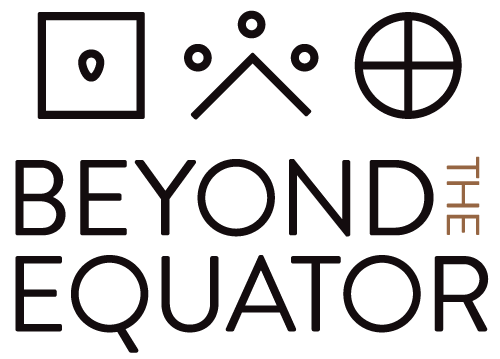Palm oil, an ingredient that is now synonymous with the destruction of rainforest habitat. An ingredient that seems to be in just about everything and almost impossible to avoid. From soaps to cereal, chocolate to peanut butter, and even cleaning products, palm oil is everywhere. So what are your options if you want to avoid it? Does it mean ditching all your favorite things? Let’s find out.
Where Does Palm Oil Come From?
Palm oil comes from the fruit of the oil palm tree. Both palm oil and palm kernel oil can be extracted from this fruit. Palm oil is edible and used in food manufacturing while palm kernel oil is primarily used in cosmetics, soaps, and cleaning products.
It is favored due to its versatility, inhibiting oxidation so products last longer, and is semi-solid at room temperature making it ideal for spreads. It is also ideal for frying food as it can withstand high temperatures without smoking, adding that sought-after crispness to fried food and biscuits.
Environmental Issues Related To Palm Oil
Despite originating in Africa, oil palm trees are now cultivated throughout Asia on an incredible scale as well as in North and South America. As oil palms grow best in rainforest environments, huge swathes of rainforests have been destroyed to create these plantations.
This has led to the destruction of natural habitats and the death of native species such as elephants, rhinos and orangutans. According to research:
“Over 50,000 orangutans on the islands of Borneo and Sumatra have died because of palm oil deforestation.”
This is perhaps the single biggest reason to avoid products containing palm oil. Even companies who advertise as using only sustainably sourced palm oil should be avoided. This is due to ‘sustainable certification’ being virtually meaningless and impossible to truly determine. Best practice is to avoid products that contain palm oil in any form, whether it is claimed to be certified green or not.
Health Implications Of Palm Oil Use
Aside from the environmental implications, palm oil is also overwhelmingly negative with regard to your health. It is high in saturated fats which is a major contributor to heart disease, these fats are linked to higher cholesterol and triglycerides, both risk factors for heart disease.
A better option is coconut oil, which behaves similarly to palm oil. However it is still important to choose coconut oil that is ethically sourced as there are some concerns about its impact being on par with palm oil.
Which Pantry Staples Contain Palm Oil?
So what items in your pantry or refrigerator should you be finding palm oil free alternatives for?
- Peanut butter and spreads such as Nutella
- Confectionery and chocolate, including Skittles, Kit-Kat, Hershey’s, and Lindt
- Cereals including Cheerios, Count Chocula, and Trix
- Snacks such as Oreos, granola bars and Lays chips
- Ice cream and toppings including Ben & Jerry’s, Eskimo Pies, Cool Whip, and Reddi Whip
Why Is Palm Oil So Prevalent?
According to New York City-based nutritionist Natalie Rizzo, this has occurred:
“Because the United States banned the addition of trans fats to food... many manufacturers have turned to palm oil, which is an inexpensive substitute."
As so often happens, profit overrides any other aspect of decision making for these large scale companies. At Beyond The Equator, we take a different approach.
Peanut Butter Without Palm Oil
Before you consign yourself to a life without your beloved PB&J or any other delicious treats, there are thankfully some great alternatives that are palm oil free. One of the easiest switches you can make is to Beyond The Equator 5 Seed Butter.
5 Seed Butter is similar in texture, taste, and color to peanut butter but without any palm oil or dangerous allergens. It also contains numerous health benefits, our 5 Seed Butter range combines some of the best and most underutilized superfoods, we use:
Sunflower seeds, which are high in magnesium, vitamin E, and protein. These tiny seeds can help lower blood pressure, blood sugar, and cholesterol.
Chia Seeds, these are high in omega-3 fatty acids and protein, fiber, magnesium, calcium, iron, copper, phosphorus, manganese, and selenium.
Flax seeds, also high in omega-3 fatty acids and protein, can help lower blood sugar and insulin levels, aids in weight loss, improve skin health, and is rich in lignans which are shown to reduce the risk of certain cancers.
Pumpkin seeds, high in iron, calcium, B2, folate, and beta-carotene, which the body metabolizes into vitamin A. They also contain omega-3 and omega-6 fatty acids.
Hemp seeds, high in protein, unsaturated fats, and fiber. It also contains zinc, iron, and the B vitamins niacin, riboflavin, thiamine, and folate.
5 Seed Butter is also higher in protein and lower in carbohydrates than peanut butter, making it ideal for those following a ketogenic diet. It is also naturally low in sugar and dairy-free, vegan, paleo, gluten-free and non-GMO certified.
The Ingredient That Keeps Giving
With a jar (or two) of 5 Seed Butter at hand, you can in fact create a whole host of palm oil free recipes.
For palm oil-free, nutrient-dense granola bars, simply follow this recipe from our website. Or if you love oats for breakfast, why not try our Seed Butter Oat Bowl. And you’ll never miss out on a delicious and nutritious cookie if you incorporate seed butter, such as with these Spiced Maple Cookies.
The majority of store-bought items that contain palm oil are also high in sugar, salt, fat, colors, and flavor enhancers making them a seriously unhealthy option. By making your own palm oil free favorites at home, you not only help protect our environment but yours and your family’s health too.
Beyond The Equator - Making A Change For Good
At Beyond The Equator, all our decisions around creating nutritious, allergy-friendly foods are also centered around being as sustainable as possible. We want to be a force for change in the food industry and show that there are so many alternatives out there to processed foods that harm our planet.

